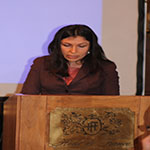Euroacademia Conferences
 Europe Inside-Out: Europe and Europeanness Exposed to Plural Observers (9th Edition) April 24 - 25, 2020
Europe Inside-Out: Europe and Europeanness Exposed to Plural Observers (9th Edition) April 24 - 25, 2020 Identities and Identifications: Politicized Uses of Collective Identities (9th Edition) June 12 - 13, 2020
Identities and Identifications: Politicized Uses of Collective Identities (9th Edition) June 12 - 13, 2020 8th Forum of Critical Studies: Asking Big Questions Again January 24 - 25, 2020
8th Forum of Critical Studies: Asking Big Questions Again January 24 - 25, 2020 Re-Inventing Eastern Europe (7th Edition) December 13 - 14, 2019
Re-Inventing Eastern Europe (7th Edition) December 13 - 14, 2019 The European Union and the Politicization of Europe (8th Edition) October 25 - 26, 2019
The European Union and the Politicization of Europe (8th Edition) October 25 - 26, 2019 Identities and Identifications: Politicized Uses of Collective Identities (8th Edition) June 28 - 29, 2019
Identities and Identifications: Politicized Uses of Collective Identities (8th Edition) June 28 - 29, 2019 The European Union and the Politicization of Europe (7th Edition) January 25 - 26, 2019
The European Union and the Politicization of Europe (7th Edition) January 25 - 26, 2019 7th Forum of Critical Studies: Asking Big Questions Again November 23 - 24, 2018
7th Forum of Critical Studies: Asking Big Questions Again November 23 - 24, 2018 Europe Inside-Out: Europe and Europeanness Exposed to Plural Observers (8th Edition) September 28 - 30, 2018
Europe Inside-Out: Europe and Europeanness Exposed to Plural Observers (8th Edition) September 28 - 30, 2018 Identities and Identifications: Politicized Uses of Collective Identities (7th Edition) June 14 - 15, 2018
Identities and Identifications: Politicized Uses of Collective Identities (7th Edition) June 14 - 15, 2018
East – West Reflections On the Shared Values
-
-

-
Presentation speakers
- Liliya Sazonova, Institute for the Study of Societies and Knowledge, Bulgarian Academy of Sciences
- Download presentation
Abstract:
The paper aims at examining the specificities of the process of consolidation of the EU citizens around certain European values. It is thematically developed in three parts. The point of departure of the first chapter is the understanding that the long lasting process of European consolidation has been historically shaped around certain contradictions – between Europe and Asia, Christianity and Islam, East and West, etc. In this context the official EU politics towards difference manifested in its slogan “United in Diversity” presents a new paradigm – the European identity as a supranational project implies a new type of openness for coexistence with the difference. However, following Guild’s investigation of the restricted policy towards immigrants in the Union the paper tries to examine how the “other” in terms of the immigrant delimits the officially proclaimed recognition of the diversity in the Community. From this perspective three levels of the EU “otherness” are illustrated – the “other” citizen of the West European countries that remained out of the EU, the East European Other and the “others” coming from the developing world. The second chapter develops further the notion of the East European Other by exploring the applicability of the European values in “New Europe”. For example, Harmstone argues that as a result of the transition from communist to “western” values the latter are perceived mainly instrumentally in Central Europe. The challenge is that while these values are recognized as non-negotiable European standards, the representatives of the various member states have often different economic, political and cultural background and consequently readiness to apply them. The third chapter presents an attempt to answer the above-posed questions articulating two separate discourses framing the European values. The first one refers to the essentialist approach looking for a metaphysical reasoning of the universality of the values by developing the common culture, history and human nature rhetoric. The problem that remains to be answered by this perspective is how such inherited in the European tradition values would be coordinated with the principle of diversity proclaimed in the EU and with its multicultural reality. The second reading of the European values presents them in a more postmodern and debatable way and offers a mechanism of reconciling the heterogenic East-West European society. It refers to the existential moment implying that the European values should not be interpreted as framed by the dispositive of the unity, as top-down invented concepts serving the purpose of fostering the European integration but they rather appear to be contextual and subject of public discussions. It is argued that he European public sphere can be seen as space where such a dialogue over the values and contestation of European ideas is possible to happen.
-


















